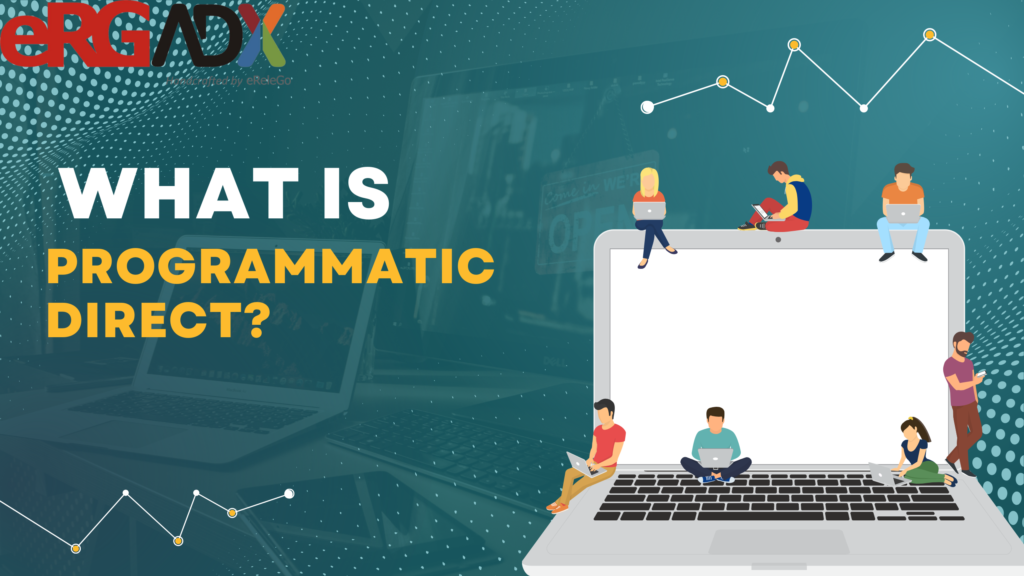For the most seasoned marketers, the online advertising sector is crowded with a variety of media-buying strategies, making it more and more challenging to understand.
Phrases like real-time bidding private marketplace and programmatic direct are all included in the programmatic category, it is important to keep in mind that they refer to very diverse ideas.

Programmatic direct is a type of programmatic advertising that comprises an exchange-free direct transaction between a publisher and an advertiser. Advertisers approach publishers directly to purchase ad space via programmatic direct.
Advertisers and publishers can also agree on a fixed CPM when using Programmatic Direct.
Programmatic direct deals fall into one of two categories:
Preferred: This is one-to-trading with a fixed price but variable volume. Programmatic Guaranteed: This type of trading involves one-to-one exchanges with guaranteed volumes and a set price. Consider a prominent e-learning website that decides to collaborate with a bookseller because it has advertising space on the site.
Both parties would benefit from a preferred or programmatic guaranteed arrangement since the publisher would receive ads.
Programmatic direct, which includes a non-auction deal gives both parties more control.
Direct programmatic arrangements provide CPM and impression guarantees for a set cost and time frame. Additionally, programmatic direct makes sales easier because everything happens in one system.
Publishers looking for more control over their inventory will love programmatic direct. The sale of ads on premium sites is also directly under the control of advertisers.
Advantages of Programmatic Direct
Higher Return: Publishers can receive greater rates for their ad inventory compared to the free market using programmatic direct sales, which can ensure that premium ad spaces are occupied.
More accurate observation and Insights: With direct transactions, the publisher is able to effectively manage costs.
Accountability: Targeted agreements typically reduce some of the accompanying security strain, but counterfeit traffic continues to be a major worry for the digital advertising sector.
Disadvantages of Programmatic Direct
No warranty of full filling: Although it may be the case for the majority of high-end publishers, it may not be the case for all of them. The publisher typically proceeds to sell the remaining inventory on ad exchanges.
Need direct and full access to the ad server: The customer will need direct access to the publisher’s inventory in any format, like their ad server, via an API in order to complete a direct transaction.
The buying on private marketplaces will finally surpass the buying on open exchanges the following year, predicts eMarketer. According to the projection marketers in the US will spend $11.56 billion on the private market and $12.22 billion on open exchanges this year. This amount will increase to $13.77 billion and $15.97 billion, respectively by the year 2021.
The programmatic media buying ecosystem employs a number of auctions, with the criteria for price and access held at each “waterfall” level. Deal IDs are used in the private marketplace auction to link the publisher’s existing supply-side platform to the demand.
Difference between Programmatic Direct and Private Marketplace (PMP)
A private marketplace is the invite-most effective version of the RTB model. It is similar to the RTB model, wherein advertisers bid on each other to buy advert space.
Major publishers-together with The New York Times or Forbes – generally provide this technique to promote their top-class inventory.
We at eRGADX provide the best service through Google demand & 20 + DSP (Pubmatic, Verizon, Openx, Smaato etc). and with our best team in Bangalore – India. We guarantee to provide the best service. Feel free to connect with us.

